Are you looking for a way to address critical incidents effectively within your organization? Crafting a clear and concise letter for a debriefing session can make all the difference in how your team processes and learns from these events. In this article, we'll explore key components of a critical incident debriefing letter to ensure your message resonates and encourages open dialogue. So, buckle up and join us as we delve into the best practices that will elevate your organization's communication during challenging times!

Clear incident summary
A critical incident debriefing requires a clear summary to ensure all participants understand the event. For example, a workplace incident occurring on September 15, 2023, at a manufacturing facility in Dallas, Texas, involved a chemical spill of anhydrous ammonia, which is categorized as a hazardous material. The spill was approximately 50 gallons, resulting in the evacuation of 200 employees. Emergency services, including the Dallas Fire-Rescue Department, responded within 10 minutes. Initial assessments indicated no injuries, but several employees reported respiratory discomfort. The incident prompted immediate containment measures using specialized absorption equipment and called for an environmental cleanup team from the Texas Commission on Environmental Quality (TCEQ). A follow-up review was scheduled for September 22, 2023, to address safety protocols and employee training regarding hazardous materials handling.
Emotional support resources
Critical incidents can profoundly impact individuals' emotional well-being. Access to emotional support resources is essential in navigating the aftermath of such experiences. Counseling services provided by licensed professionals can offer confidential guidance and coping mechanisms. Peer support groups allow individuals to share their experiences and feelings in a safe environment, fostering community resilience. Hotlines, like the National Suicide Prevention Lifeline, are available 24/7 to provide immediate assistance. Educational workshops on stress management can equip individuals with strategies to handle anxiety and trauma. Organizations often provide employee assistance programs (EAPs) as part of their benefits, ensuring access to mental health resources. Timely outreach and availability of these resources can significantly aid in the healing process.
Roles and responsibilities
Critical incident debriefing involves a systematic approach to understanding and evaluating the roles and responsibilities of various team members involved in responding to emergencies. Identifying specific roles such as first responders, crisis managers, and medical personnel is essential. First responders, often firefighters and police officers, initiate immediate action, assessing the scene for safety and providing initial emergency care. Crisis managers coordinate the response, ensuring effective communication among agencies and managing the logistics of the incident. Medical personnel are responsible for triaging patients, delivering care based on severity, and ensuring accurate documentation of injuries. Additionally, mental health professionals play a vital role in supporting both victims and responders, addressing psychological impacts of the incident. Establishing clear responsibilities fosters accountability, enhances teamwork, and improves overall response effectiveness during critical situations.
Key learnings and improvements
A critical incident debriefing focuses on analyzing events to extract key learnings and improve processes. During the debriefing, participants discuss specific incidents (e.g., workplace accidents, safety breaches) that occurred in identifiable settings, like hospitals or manufacturing plants, to understand root causes. Discussions often reveal important patterns, such as communication failures or procedural lapses, which can lead to actionable recommendations for safety protocols. By documenting these learnings, organizations aim to refine training programs, enhance response strategies, and ultimately foster a proactive culture that prioritizes safety and preparedness. Regularly scheduled debriefings after notable incidents also ensure continuous improvement and alignment with best practices in crisis management.
Confidentiality reminder
Critical incident debriefing sessions are essential for addressing traumatic events within organizations, such as workplaces or educational institutions. Maintaining confidentiality during these discussions ensures that sensitive information remains protected. Situations involving staff or students, like psychological trauma following a critical event, must be treated with discretion. Participants, including mental health professionals and organizational leaders, should remember that sharing details from debriefings outside the session can jeopardize trust and a safe space for open dialogue. Adhering to guidelines reinforces the integrity of the debriefing process and supports the healing journey for those affected by incidents, such as workplace accidents or violent acts.
Letter Template For Critical Incident Debriefing Samples
Letter template of critical incident debriefing for school administrators
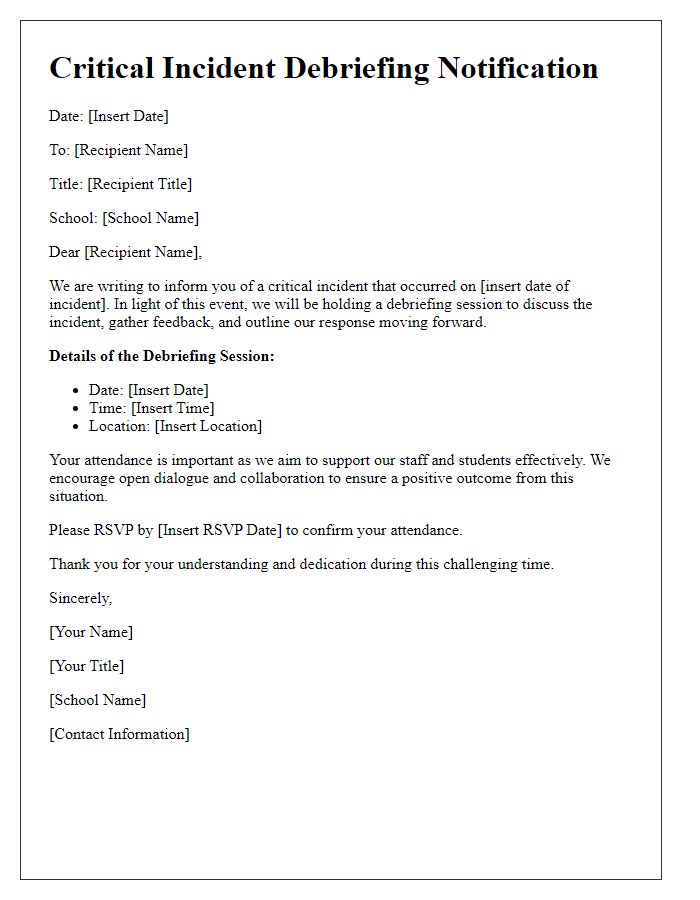
Letter template of critical incident debriefing for mental health professionals
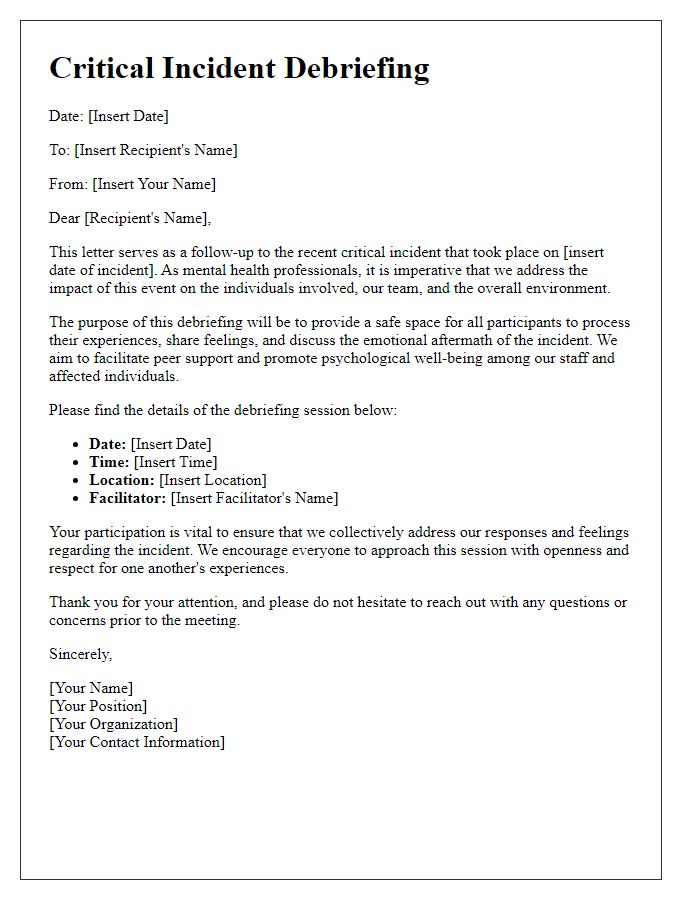
Letter template of critical incident debriefing for law enforcement agencies
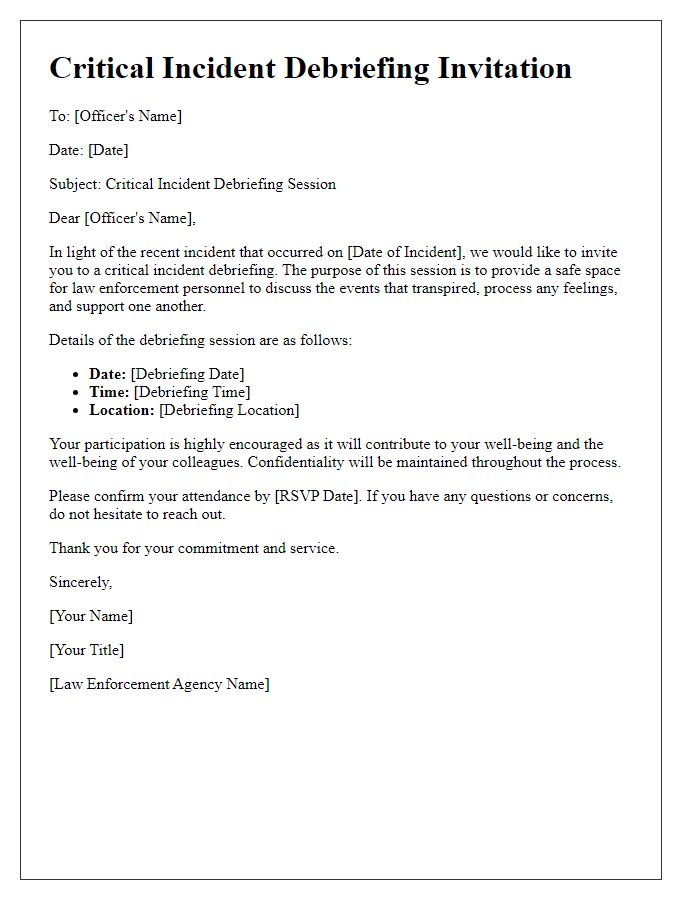
Letter template of critical incident debriefing for healthcare providers
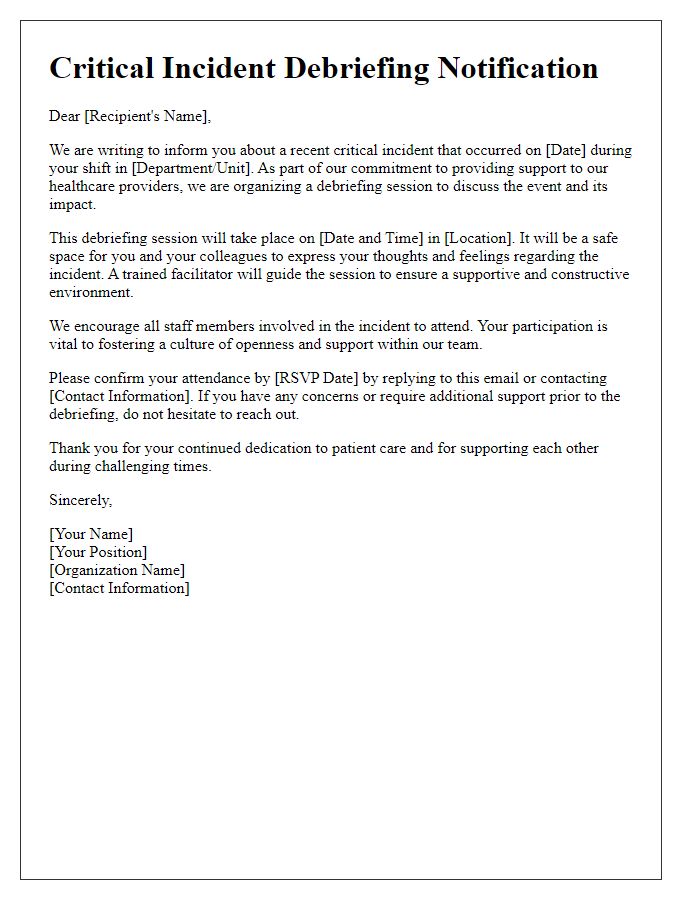
Letter template of critical incident debriefing for emergency response teams
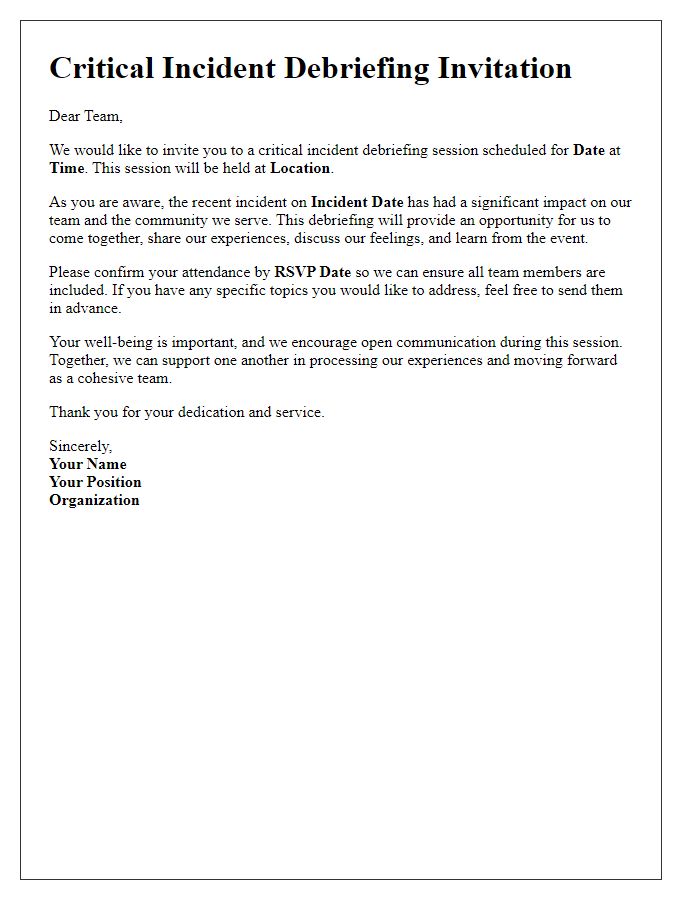

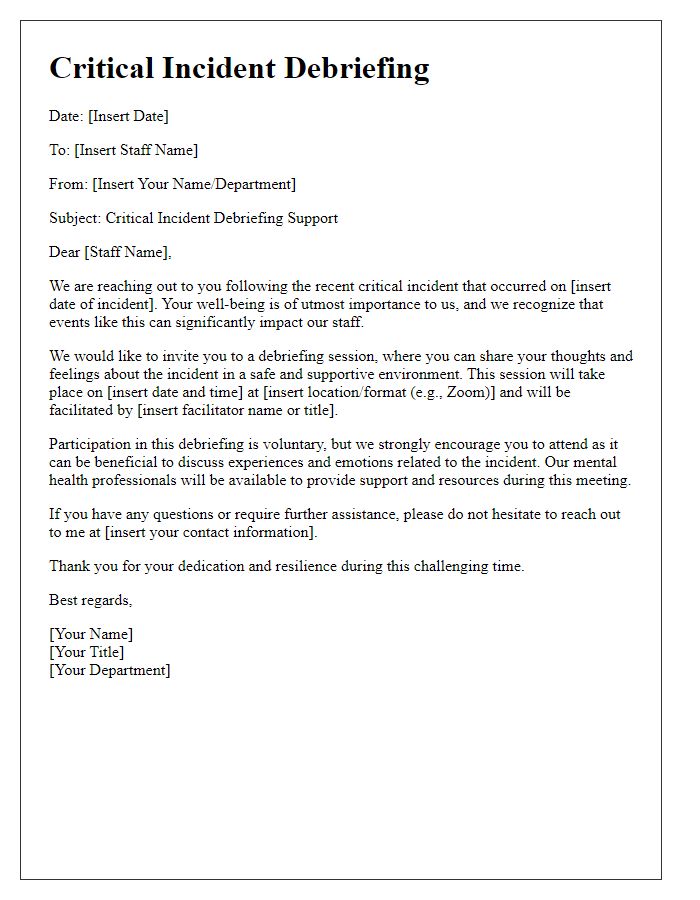
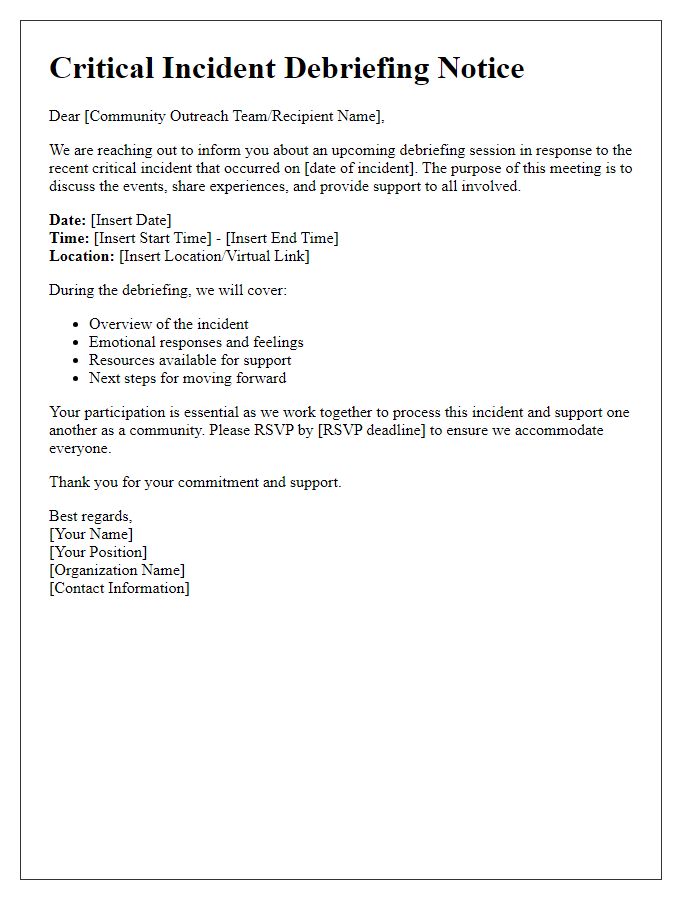
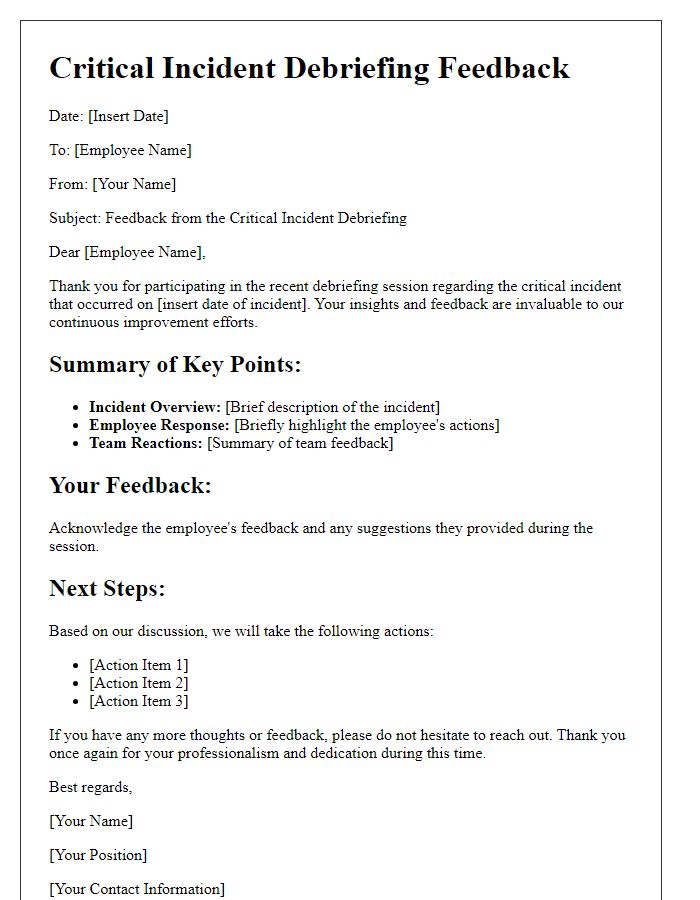
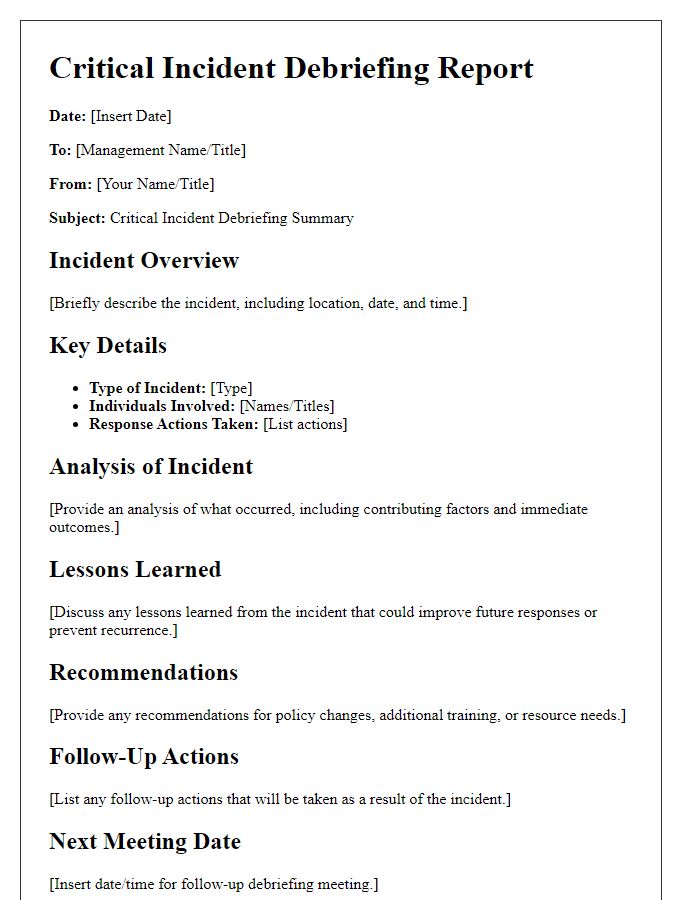
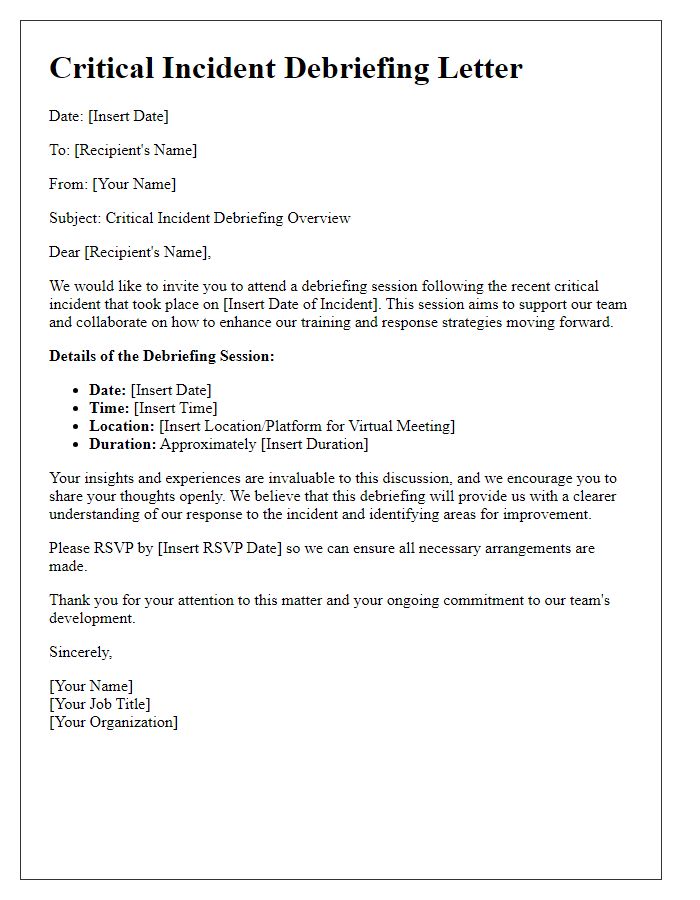


Comments